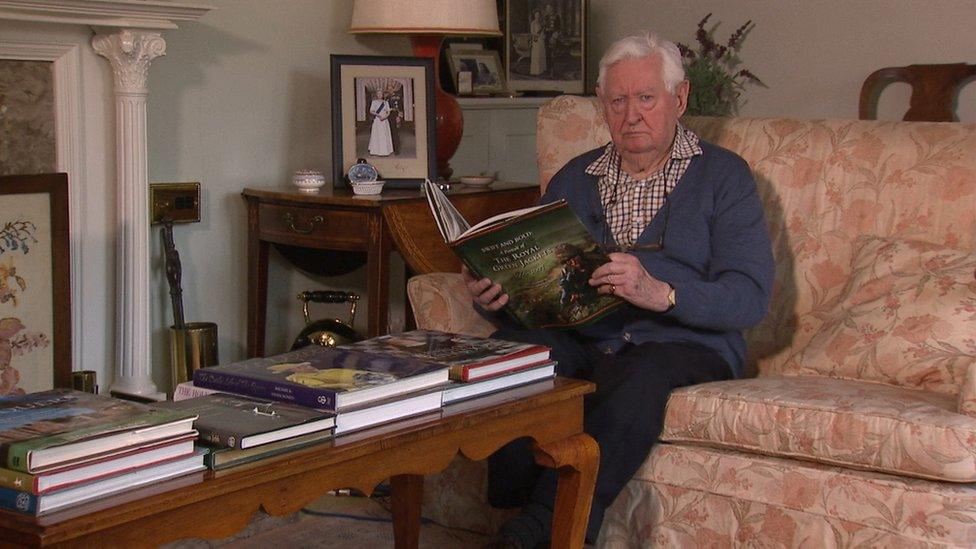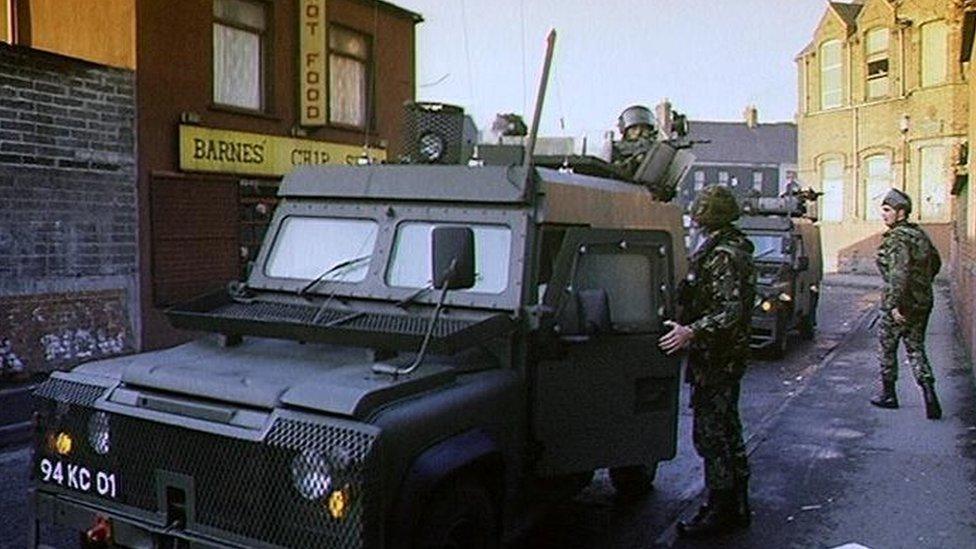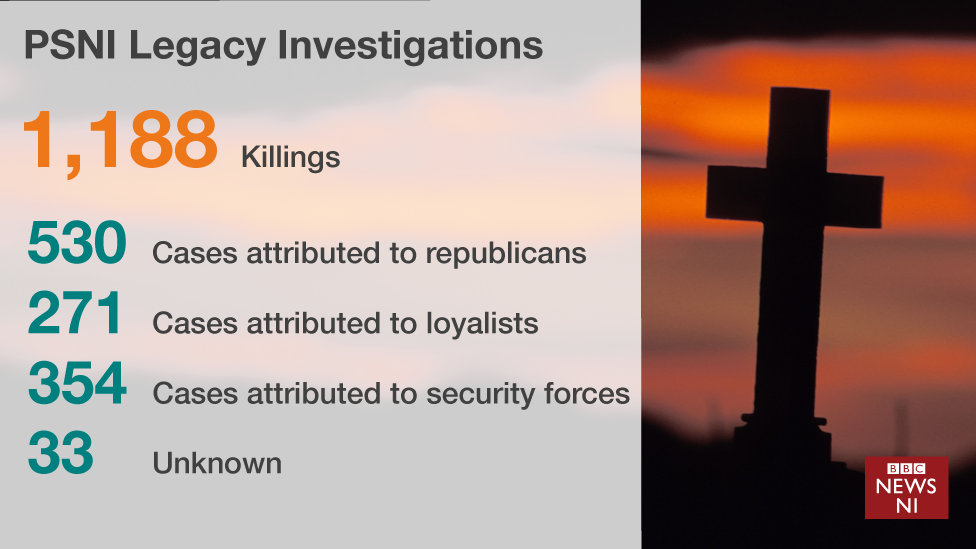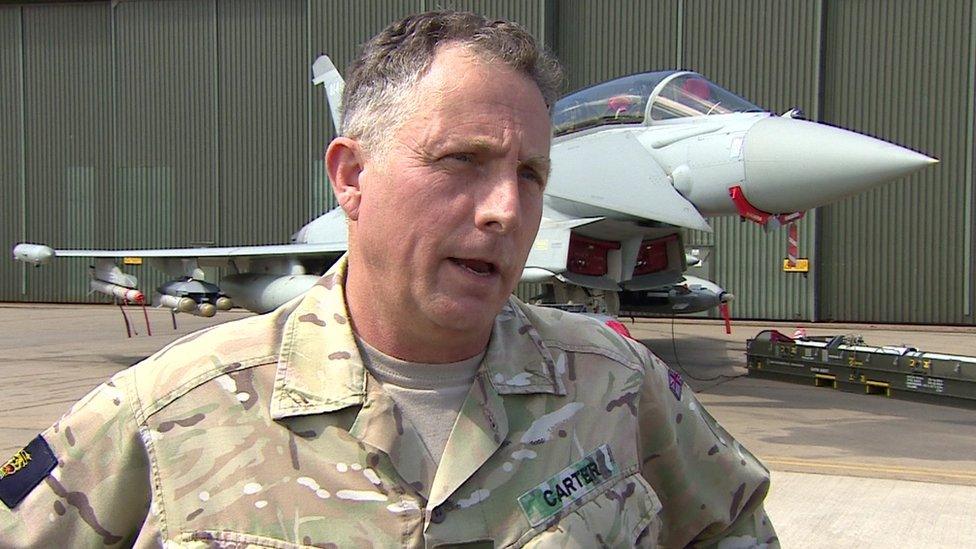Ex-army chief urges government to stop 'macabre charade'
- Published

Lord Bramall said the questioning "greatly abuses these hapless soldiers"
It is "grossly unfair" that soldiers who took part in Bloody Sunday should be questioned by police, a former chief of the Army has said.
Lord Bramall served as chief of the general staff between 1979 and 1982.
Thirteen people were shot dead in Londonderry in 1972 after troops opened fire on a civil rights march.
According to the Police Service of Northern Ireland (PSNI) figures, obtained by BBC News NI last year, around 70% of investigations into killings during the Troubles do not involve the security forces.
In May, a government consultation was launched, external on the legacy of the Troubles.
The consultation includes plans for a new Historical Investigations Unit, external, with policing powers, which will look at claims against former soldiers.
'Abusing hapless soldiers'
Lord Brammall urged the government to stop what he called a "macabre charade" that could see soldiers facing legal action. Writing in the Daily Telegraph he said the PSNI are "harrying" veterans in a "desperate attempt to bring criminal charges".
He said he had warned against the questioning of veterans in a speech in Parliament eight years ago.
He said: "It is... bewildering that the government has somehow allowed the Northern Ireland Police Service to resurrect the whole affair and to introduce this extremely lengthy and slow-moving questioning under caution of British soldiers."

A government consultation into the legacy of the Troubles was launched in May
"In the interests of justice, fair play and even-handedness, the government must, by whatever means, put a stop at once to this macabre charade."
MPs have called on the government to introduce a statute of limitations to end what they claim is a "witch hunt" against members of the armed forces.
Sinn Féin MLA Linda Dillon said that the comments were "extremely insulting" to the families of victims of the conflict, some of whom have waited over 40 years for answers.
She said: "The British chief of the defence staff should acquaint himself with the facts and the best way to do this would be by meeting with the families in order to understand the hurt such claims make."
Legacy cases
The police legacy branch are re-investigating 1,188 deaths not previously reviewed or completed by the now defunct Historical Enquiries Team (HET).

The HET previously completed reviews of 1,625 cases, which related to 2,051 deaths.
The majority of the cases, 1,038, were attributed to republican paramilitaries, mostly the Provisional IRA.
Of the others, 536 cases were attributed to loyalists, 32 to the army, and it is not known who was responsible for the remaining nine.
Clarification 13 August 2018: An earlier version of this story omitted important context about investigations currently under way into historic Troubles related killings.
Clarification 9 April 2019: This article was amended to remove a reference to the death of John Johnston. This reflects the Bloody Sunday Inquiry's finding about Mr Johnston's death several months after he was wounded in Derry on 30 January 1972. The inquiry report states that his death was "not the result of any of the wounds he sustained on Bloody Sunday".
- Published3 August 2018
